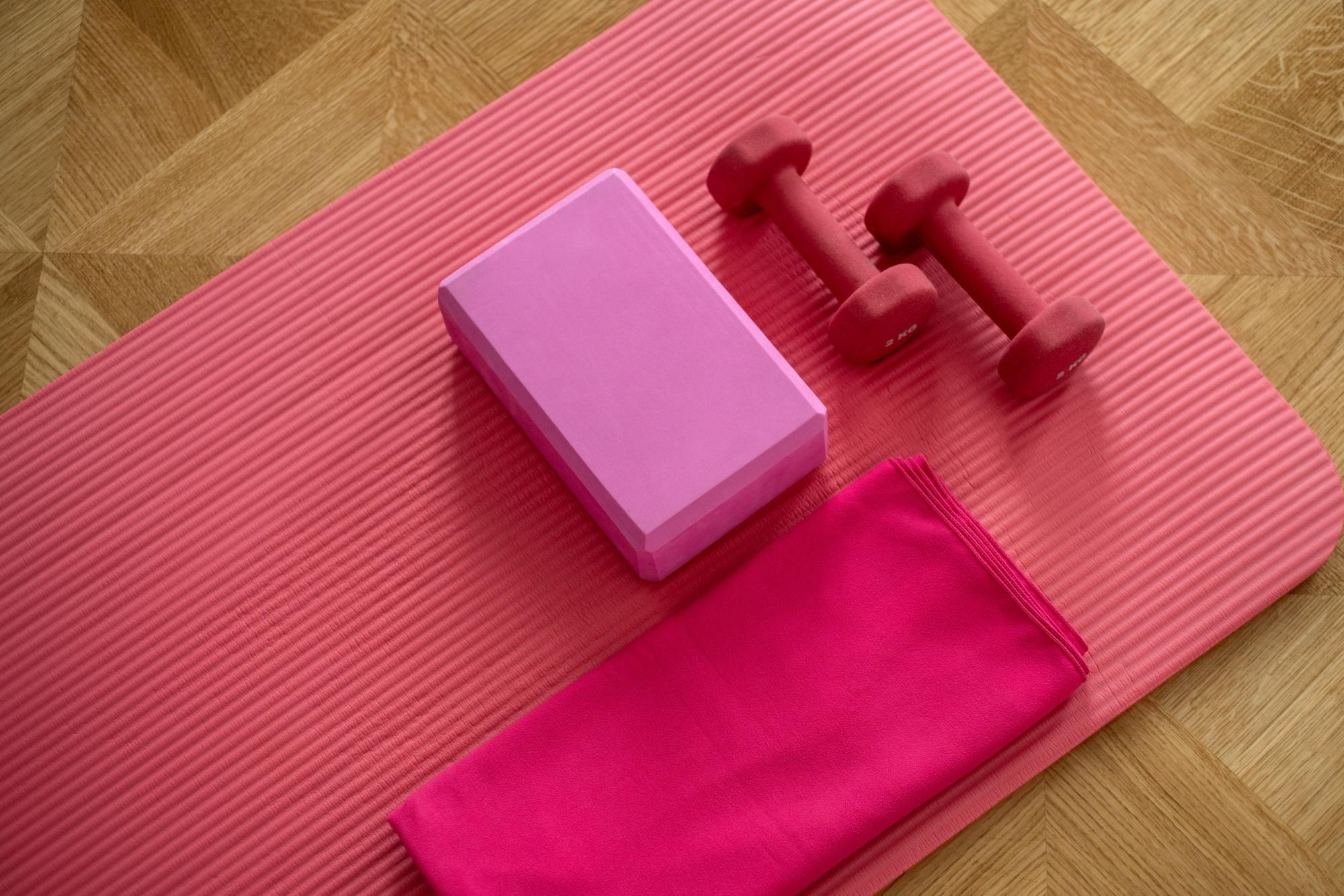How Just 5 Minutes of Exercise Can Prevent Cancer
Cancer's Foes: Short Exercise and the Path to Prevention
Cancer, an ominous adversary, continues to cast a looming shadow on global health, as its incidence steadily rises. This disease's presence hangs heavily, impacting countless lives and communities. In recent times, cancer rates have surged, elevating it to a pressing concern for individuals, healthcare systems, and society at large.

Emphasizing prevention has become paramount in the struggle against cancer, offering hope and the potential to alleviate the substantial burden it imposes. While advancements in treatment remain critical, the significance of prevention cannot be overstated. It constitutes a proactive approach that not only saves lives but also lessens the emotional and financial toll exacted by cancer.
A study was published on 27 July 2023 in JAMA Oncology by Dr Emmanuel Stamatakis , PhD, professor of physical activity, lifestyle and population health at the University of Sydney, which states that consistent vigorous exercise for 4.5 minutes every day reduces the risk of potential life-threatening cancers by 32%. This shocking relationship between cancer prevention and exercise, combined with its accessibility and feasibility, renders it an appealing avenue worthy of exploration.
In this article, we will delve deeper into the growing cancer incidence and studies which prove the increasing significance of short-duration exercise as a proactive step towards a healthier, cancer-resistant future. Together, we aim to illuminate a path that empowers individuals to take control of their health and reduce the prevalence of this formidable disease.
Cancer Defense in Motion: The Science of Exercise and Prevention
● An Overview of Cancer and its Prevalence
Cancer, a complex cluster of diseases characterized by uncontrolled cell growth, has emerged as a significant global health issue. Its incidence has steadily risen, spurring extensive research into methods of prevention. Cancer poses a substantial threat to public health, impacting millions of lives and leading to numerous fatalities each year.
● What is Vigorous Intermittent Lifestyle Physical Activity (VILPA) and Its Biological Connection with Preventing Cancer
According to the Research team at the University of Sydney,
" Vigorous intermittent lifestyle physical activity (VILPA) refers to 1- to 2-minute periods of vigorous physical activity performed within everyday tasks, such as walking with shopping bags or climbing a flight of stairs."
All sorts of activities irrespective of their length and location count. It doesn't have to be a 45-minute run on the treadmill or a 20-minute pilates session. The biological nexus between exercise and cancer prevention has piqued the interest of researchers. Physical activity influences cancer prevention through various avenues. Around 70% of people associate exercise with weight management but it also has several more benefits to offer. Exercise keeps the hormonal balance intact. Estrogen is a hormone which plays a crucial role in breast and ovarian cancer. Continuous physical activity helps diminish the amount of estrogen produced, thus offering protection against these diseases.
Another unknown benefit of exercise is its ability to boost the body's immune system which is responsible for protecting our body from harmful substances and fighting against cancer cells. This is how by curtailing the body's inflammatory response, exercise acts as a shield against cancer initiation and advancement.

● Recent Research and Discoveries
Recent research outcomes firmly underscore the significance of integrating physical activity into daily routines as a proactive strategy to lower cancer risk and enhance overall well-being.
A study published in the Current Nutrition Report Journal by Carmen Jochem investigates the link between a sedentary lifestyle and cancer risk. A significant increase in the risk of certain cancers was observed in people who had high sedentary behaviour. The risk of endometrial cancer increased by 28-36%, a 28-44% increase in colorectal cancer and an 8-17% increase in breast cancer was also noticed.
Another article authored by Cust AE, titled " Physical Activity and Gynecologic Cancer Prevention ," was published in 2011. It delves into the relationship between physical activity and the prevention of gynecologic cancers. The study examines research findings in this area and underscores the significance of engaging in physical activity to reduce the risk of cancers that affect the female reproductive system. The epidemiological evidence to date suggests that people who engage in consistent physical activity every day have a risk reduction of 20-30% compared to those with the lowest levels of physical exercise.
Note that even light to moderate forms of exercise like walking, doing house chores and gardening may also reduce the risk.

5 Minutes to Better Health: Exercise's Tiny Triumphs
In this paragraph, we will be discussing the benefits of exercise even if we do it for just five minutes every day.
● Cardiovascular Enhancement
Surprisingly, even just five minutes of exercise can trigger a range of impressive health advantages, particularly concerning your heart health. Consistent moderate to vigorous-intensity physical activity can strengthen your heart muscles which will ultimately improve the heart's ability to pump oxygen to the lungs and throughout your body. As a result, more oxygen flows to your muscles.

Exercise also takes care of our heart health by increasing the level of good cholesterol i. e high- density cholesterol (HDL) while simultaneously decreasing the level of low-density cholesterol (LDL), which is often known as bad cholesterol in our body.
● Reinforced Immune Response
The noteworthy aspect is that increasing the intensity of daily tasks for as little as four to five minutes per day, broken down into one-minute bursts, is connected to an overall reduction in cancer risk by up to 18%, and even up to 32% for cancer types associated with physical activity, as noted by the lead author. These brief bursts of activity, lasting about a minute each, encompass activities such as vigorous housework, carrying heavy groceries, or quick power walks can enhance the immune response through various mechanisms.
Physical Activity promotes better circulation of blood and lymphatic fluid, allowing immune cells to move freely and encounter pathogens more effectively. It also improves the function of immune cells like T cells and natural killer cells, which are crucial for fighting infections. Regular physical activity reduces chronic inflammation, decreases stress levels, and helps maintain a healthy body weight, all of which contribute to a stronger immune system.
● Stress Alleviation and Hormonal Equilibrium
Short bouts of physical activity trigger the release of neurochemicals such as dopamine and serotonin, which promote feelings of tranquillity and happiness. Consequently, stress and anxiety levels decrease.
Furthermore, brief exercise sessions aid in maintaining hormonal balance. Cortisol, the body's primary stress hormone, diminishes during and after physical activity. Balanced cortisol levels contribute to more effective stress management, better sleep, and an overall equilibrium in hormones.
In short, the advantages of allocating merely five minutes for VILPA are undeniable. Embracing this small yet influential commitment to physical activity can yield significant enhancements in overall health and well-being.
Elevate Your Defense: Incorporate more VILPA into your everyday
The Centers for Disease Control and Prevention (CDC) prescribes practices that contain multiple components to help improve physical well-being. Most of the exercises recommended by them are already a part of our everyday life and recreational activities.
Here are some tips through which we can incorporate more VILPA in our lives:
1. Stretching: Kickstart your day by doing some gentle stretches. Reach for the sky, roll your shoulders, and stretch your arms and legs. These easy moves help you stay flexible, relieve muscle tension, and get your blood flowing. You can easily fit these stretches into your morning routine while waiting for your coffee to brew or brushing your teeth.
2. Chair-Based Exercises: If you have a desk job that keeps you sitting for long periods, remember to take short breaks. During these breaks, try chair-based exercises like lifting your legs, rotating your ankles, or doing seated marches. These exercises engage your muscles and counteract the effects of prolonged sitting.
3. One-Leg Balance: Find moments in your day to work on your balance. When you're waiting in line or for the microwave, lift one foot off the ground and challenge yourself to balance on the other for a few seconds. This simple activity improves your stability and strengthens your leg muscles.
4. Heel Raises: Integrate heel raises into your daily routine. Whether you're waiting for an elevator, standing at the kitchen sink, or washing dishes, rise onto your tiptoes and then lower your heels back down. This exercise targets your calf muscles and helps maintain lower body strength.

Integrating a combination of aerobic, resistance, and flexibility/balance exercises into your routine offers a comprehensive approach to cancer prevention. Remember, consistency is key when it comes to incorporating VILPA into your daily life. By making VILPA a habit, you'll enjoy improved mobility and reduce the negative effects of prolonged sitting.
Closing Thoughts: Embrace Short-Duration Exercise for a Healthier You
In conclusion, short bouts of exercise, lasting just five minutes, emerge as a beacon of hope within the realm of health and well-being. We've explored their remarkable potential in preventing cancer, highlighting the multitude of advantages they offer. These quick five-minute tasks encompass strengthening cardiovascular health, boosting the immune system, and alleviating stress, all of which can be transformative.
It's crucial to acknowledge that integrating a mere five minutes of exercise into your daily routine is a manageable endeavour. It represents a small, yet profoundly influential, commitment to your health. Whether it involves a brisk walk, a few sets of bodyweight exercises, or a moment devoted to stretching and deep breathing, every modest effort contributes to your well-being.
As you embark on this path towards improved health, remember the significance of consistency. Those daily five-minute increments accumulate into a healthier, more contented version of yourself over time. Thus, initiate this journey today, and inspire your loved ones to join you in this pursuit. Share this article with them, and let's spark a collective dedication to enhanced health and cancer prevention.